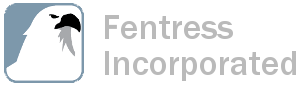The foundation of any working relationship is trust. It used to be that your manager would give you assignments, and if you performed well, you would earn greater trust. Over time, you would be given more responsibility. This responsibility often came with more autonomy – the ability to make decisions about your work with less oversight. Gaining more independence has long been a critical employee motivator. With the rise of telework, autonomy takes on a whole new meaning. Instead of something that is earned through building trust, it now must be given automatically to remote employees.
Giving remote employees immediate autonomy is a struggle for many managers. It’s difficult for managers to trust that employees can work effectively out of sight with limited supervision. I imagine there have been many managers, myself included, biting fingernails while waiting for work products from remote employees with the hope that they nailed the assignment. It is for all managers that I would like to say that I think it is still the employees' responsibility to earn their trust and autonomy as remote workers.
Employee Patterns to Watch For
Years ago, I hired a bright, capable employee with excellent references. Nothing in the interview process would suggest he would be anything but a solid performer on the team. Because we work remotely, we assign new employees a mentor for the first year to help them learn how to set up their office, manage their time, and feel more connected when transitioning to working at home. His mentor’s early reports indicated that he was doing well and adapted quickly to remote work.
The employee initially approached his work with enthusiasm. However, after several months, I noticed that he needed to contribute more to team calls and that his deadlines started to slip. He always had a reasonable excuse for missing deadlines. Next, I began to notice that calls and emails were not answered promptly.
My trust in him started to falter, so I set up an in-person meeting to discuss the situation. He was very reasonable, explained what was going on, and promised to get his work back on track.
Within a couple of weeks, the negative patterns reemerged, and the work he turned in had many errors and seemed rushed. So, I set up a meeting with him to terminate his employment. He knew it was coming, so it was all very cordial, and we had a good exit discussion. He had been working on a graduate degree, and the freedom of working from home allowed him to work on his studies instead of his job. At the end of our discussion, he said, “If I had a nickel for every time I said I wanted to leave the office and work from home, I would have enough money not to have to work at all.” This phrase spoke volumes to me. Sometimes, capable people can work very well in an office environment, but working from home is difficult.
I have seen this pattern many times in managing remote employees for over 30 years. Working from home gives the employee immediate autonomy without daily supervision. With this autonomy, the employee is free to pursue distractions, of which there are many at-home - chores, neighbors, pets, errands, children, Internet, TV, Netflix, etc. These distractions can cause employees to focus less on work, so they miss deadlines. Building pressure to turn in assignments eventually causes them to rush through the job, and the sloppy result often requires their coworkers to perform quality control on their work. In turn, these patterns give rise to negative feelings, hinder communication and team performance, and ultimately undermine trust.
Based on my experience, one out of four people have difficulty working remotely. Some need extra monitoring and support, while others need a more traditional office environment to feel connected to the job and accountable for their hours and work.
6 Ways Remote Employees Can Earn Trust
Since remote employees need immediate autonomy, focusing on building trust between the employee and manager is essential. Since the manager has to provide immediate trust to allow an employee to work from home, the employee should go the extra mile to build that trust. Here are some suggestions that can help:
In or Out - Let your manager and coworkers know when you are in or out of the office. This is a big step toward building trust. Many applications can let your team know whether you are at your desk and available for work. We use the features in Slack that indicate whether a coworker is active on their computer. Employees can also state their status, such as whether they do not wish to be disturbed, are in a meeting, are on travel or vacation, etc.
We also have a flextime policy that enables employees to take off for up to two hours without prior approval. To communicate flextime, all employees are requested to enter it on a shared company calendar and indicate when they plan to make up that time. This way, everyone can know when people are in or out of the office. Knowing whether employees are available is a crucial indicator for building trust.
Be Responsive – When employees are in the office, being responsive is the next step in building trust. This includes being available for calls or videoconferences and responding quickly to email and messaging. Responsiveness lets people know that you are there and engaged. It is frustrating to leave a voicemail or send a message only to have a coworker take hours to respond.
Communicate Clearly – Communication skills are critical in a remote work setting – perhaps even more important than when people are face to face. Be transparent in your communication via phone, video, email, text, or instant message. Don’t make the person on the other end have to interpret your meaning from a garbled or poorly communicated message.
Communicate Openly - When it comes to work, communicate openly and honestly. Since no one is looking over your shoulder, it is essential to let others know the status of your work. Too many times, I have heard employees say, “It’s all under control” or “I’m making good progress,” only to find that the opposite is true. As a manager, I want to know when there are problems well in advance, and that requires employees to communicate openly. Also, as an employee, you can proactively communicate your work status. Don’t sit back and wait for your manager to ask questions – regularly reach out and let them know. A short message that says, “I’m halfway there,” or “I hit a snag - do you have time to talk?” communicates that you are conscientious and have work integrity. Don’t leave your manager and coworkers guessing – let them know the status of your work on a routine basis.
Request Feedback - When you turn in deliverables face to face, you can gauge the reaction of your manager and coworkers by their expressions and body language. Ask for feedback since this can’t happen as quickly in a remote setting. How did that last assignment go? Did I meet your expectations? What could I have changed to improve my work? Asking questions encourages feedback, which, in turn, provides you with an opportunity for growth. Such feedback should also be sought from your coworkers. The goal is to make sure your work products do not sit in a communication vacuum – learn what you did well and discover where you can improve.
Quality Work – Nothing builds trust like turning in high-quality work because it says a lot about how you manage your time, your ability to apply your skills and knowledge, your understanding of company and customer needs, and your value as an employee. Because of this, remote workers need to take the time to review their efforts. When I complete an assignment, I typically take a short break and try to come back to it with a fresh set of eyes. If it is a spreadsheet, I try to go back through the logic again and double-check my totals. If I’m writing, I read the draft aloud to ensure it flows. The point is to do everything possible to ensure your work is error-free. In a remote setting, I have found that managers and coworkers will often correct the work of their team members rather than taking the time to provide constructive criticism or to review the work with them in more detail. This is why I encourage employees to double and triple-check their efforts.
The Building Blocks of Trust Lead to Growth
Trust is built upon many small actions. It is critical to an effective working relationship, especially for remote working. In a remote setting, managers must instantly provide autonomy and trust to allow employees to work from home. However, in my opinion, you as the employee must earn that trust by notifying your manager when you are in and out of the office, being responsive, clearly, and openly communicating on project work, requesting feedback on submitted work, and providing a high level of work quality. These actions will help remote employees earn and build trust, which, in turn, will lead to growth and greater responsibility. As Albert Einstein said, “Whoever is careless with the truth in small matters cannot be trusted with important matters.”





.jpg)

.png)
.png)
/Employee%20Autonomy%20Part%202%20(Blog%20Title).png)
.jpg)


.jpg)
.jpg)
.jpg)
.jpg)
.jpg)
.jpg)
-1.jpg)
.jpg)

